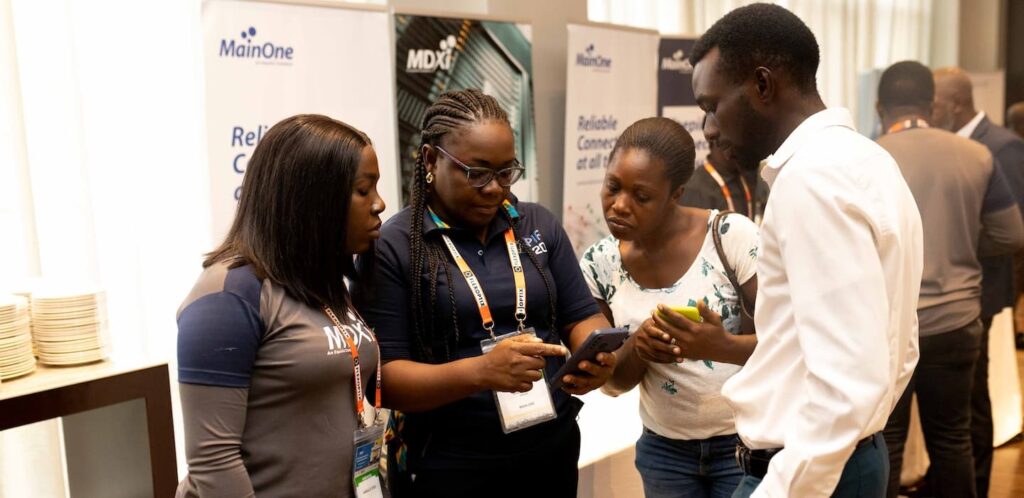Peering Fellowship > Curriculum
Curriculum
Peering Introduction
This module outlines the technical specifications, connection policies, and operational guidelines for Internet Exchange Point (IXP) participants. It aims to ensure fellows understand the interconnection ecosystem.
What Are the Course Objectives?
- Understand the benefits of peering, role of IXPs.
- Learn peering best practices.
- Identify the roles of different stakeholders (IXP, CDN, regulators, tech, etc.)
Internet Exchange Point 2.0
This course will provide participants with an understanding of the key aspects of operating an Internet exchange point (IXP). We will cover the following areas: 1) basics and introduction of IXP operations, 2) business and strategic aspects, 3) governance, policy, and regulatory and technical aspects.
What Are the Course Objectives?
- Gain a comprehensive understanding of how to establish and manage an IXP and the key building blocks that constitute a dynamic peering and interconnection ecosystem.
- Develop a good understanding of what is required to build and scale an IXP, the different governance and operating models, and the key technical aspects of running a resilient and secure platform.
- Understand the different IXP business models and how to build a growth strategy plan to take a new or existing IXP from its current development stage to the advanced stage.

Introduction to Network Operations
This course is practically oriented and provides step-by-step guidance on how to configure a UNIX/Linux server and then run a Caching Domain Name System (DNS) server in a virtualized environment. The techniques covered in the course are applicable in real-world environments to set up Internet-ready caching DNS servers.
What Are the Course Objectives?
- Learn about and operate a UNIX/Linux operating system in a virtualized environment.
- Develop competences in key networking topics: IPv4 and IPv6.
- Install third-party software on a UNIX or Linux platform using common software management tools.
- Work with the UNIX/Linux shell and become comfortable with the command line interface.
- Edit files in UNIX/Linux environments without Graphical User Interfaces (GUI).
- Understand the role of the Domain Name System (DNS) in the operation of the Internet.
- Build and activate a caching Domain Name System (DNS) server.
- Learn about the Internet Engineering Task Force (IETF) and the Request for Comments (RFC) process.

Routing
The Peering Fellowship will include a short course covering the basics of routing and the Border Gateway Protocol (BGP). The course will help participating fellows grasp the basic concepts that underpin peering.
What Are the Course Objectives?
- Understand the fundamentals and purpose of routing.
- Understand the fundamentals and benefits of BGP.
- Understand key terminologies used in BGP routing and peering.
- Understand routing best practices

Becoming an Internet Advocate
These sessions are designed to develop basic advocacy skills by providing a comprehensive overview of the advocacy cycle, identifying the four key steps in the advocacy process. The sessions will also focus on the roles involved in advocacy and include training on developing a strategy, mapping decision-making processes and powers, and energizing partners. These sessions are conducted by the Internet Society Advocacy team.
What Are the Course Objectives?
- Understand what advocacy is.
- Understand the Internet Society model for advocacy.
- Create an advocacy strategy.
Additional Learning Module: Grant Application and Project Implementation Guidance (Self-paced)
This course is designed for those interested in applying for grants through the Internet Society Foundation. You will learn how to design an impactful grant application that incorporates Monitoring, Evaluation, and Learning (MEL) principles, and will gain insight into how a grant project can positively change lives through an open, globally connected, secure, and trustworthy Internet for all.
What Are the Course Objectives?
- Learn how to design a grant application that considers the changes envisioned and measures progress over time.
- Consider the details and impact of a Grant Project Proposal.
- Understand the importance of Monitoring, Evaluation, and Learning when designing your Grant Project.
- Learn about best practices to strengthen a Grant Project proposal.
Image copyright: © Victor Ndonnang, © Aubrey Attuquaye Korley